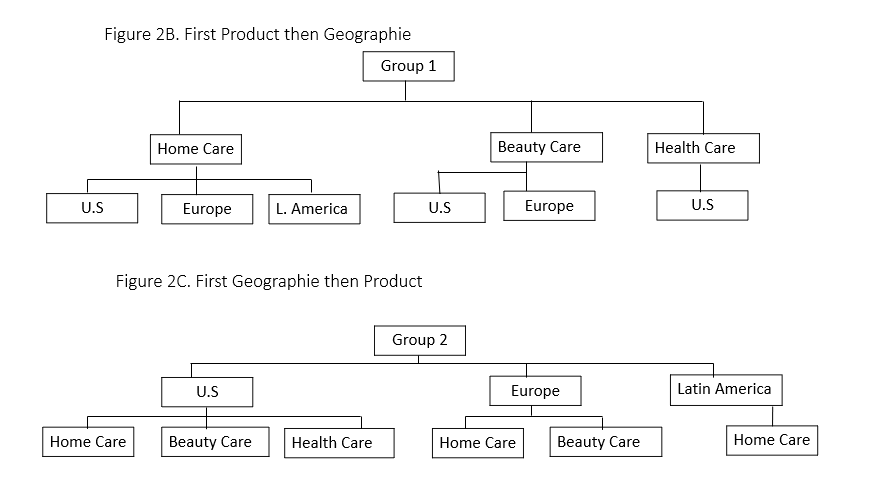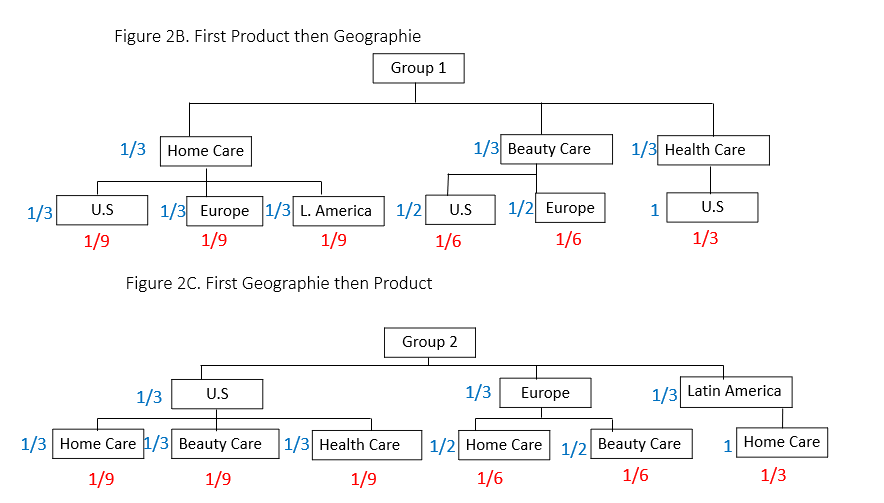You have to allocate some resources among three business units of your firm, located on three different continents. Let’s say the three business units have the same needs and profitability.
What is your allocation choice in the first case?

In the second case?
Though the problem is the same in both situations, experiments on MBA students have shown that people tend to give a different answer in each case. Here is the answer that most of them provide:

In the two cases, the firm remains the same, just the presentation of its organization changes! Yet, if we take the Business Unit Home care in Latin America, it will be allocated 1/9 of resources in the first case and 1/3 in the second case.
What happened?
Two biases have affected participants:
- Partition bias: Partition dependence bias makes us solve a problem differently according to the partition used to present the problem. Partition dependence bias is a specific case of the more general framing effect, influenced by the way a problem is presented.
- Naive diversification bias: Diversification bias is a kind of heuristic, an intuitive tool to solve rapidly complex problems. This heuristic has been first observed in marketing by the psychologist, Simonson. He showed that when people have to make a simultaneous choice (such as choosing the portfolio with the best asset allocation in one shot), they tend to diversify more of their allocation than when making sequential choices.
For further information:
“Avoiding the quicksand: Ten techniques for more agile corporate resource allocation,” McKinsey Quarterly, Octobre 2013
How to put your money where strategy is. McKinsey quaterly (March 2012)
Subjective probability assessment in decision analysis: Partition dependence and bias toward the ignorance prior, Fox&Clemen,2005
http://www.personal.anderson.ucla.edu/policy.area/faculty/fox/fox_clemen_2-05.pdf

